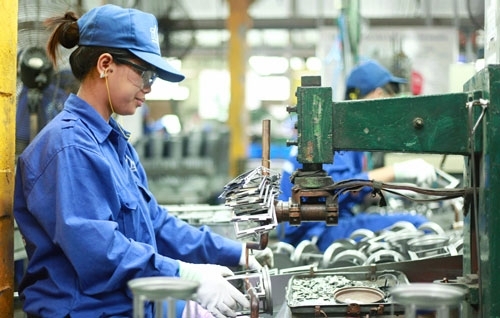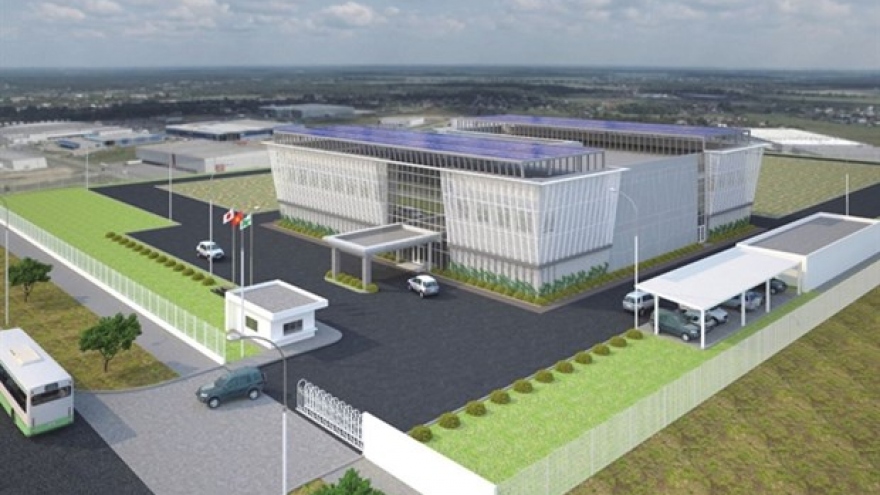Businesses seek to boost investment in hi-tech field
VOV.VN - Firms operating in the electronics and supporting industries have been advised to be well-prepared for a fresh investment wave from Europe in the hi-tech field, according to insiders.

Vietnam represents an attractive investment destination for a number of several European businesses, that are keen to invest in the local electronics and supporting industries.
Vu Tu Thanh, deputy regional managing director and senior country representative of the US-ASEAN Business Council in Vietnam, said moving past the novel coronavirus (COVID-19) pandemic, enterprises are anticipated to seize upon the opportunities from the restructuring of global supply chains, including taking full advantage of both the EU-Vietnam Free Trade Agreement (EVFTA) and the Regional Comprehensive Economic Partnership (RCEP).
“We should make full use of international economic integration and the restructuring of global supply chains, while simultaneously investing further in the electronics, e-commerce, and supporting industries, which can be considered as bright spots of the Vietnamese economy in the current climate,” said Thanh.
Nguyen Van, vice chairman of the Hanoi Supporting Industries Business Association (HANSIBA), said Vietnam has had numerous opportunities to welcome the shift of foreign direct investment (FDI) inflows and to increase the sustainability for supply chains.
Van therefore emphasised that amid the gloomy global outlook due to the COVID-19 pandemic, Vietnam represents one of the most open economies in the world, especially following the signing of more than 10 bilateral and multilateral Free Trade Agreements (FTAs), including the newly-signed RCEP.
FDI in the nation during the opening six months of the year reached approximately US$16 billion, representing a decline of 15% from the same period last year, which is still positive in comparison to other countries that have been hit hard by COVID-19.
Nguyen Van Toan, deputy chairman of the Vietnam Association of Foreign-Invested Enterprises (VAFIE), said domestic firms, especially small and medium-sized enterprises (SMEs), must now change their mindset to welcome investment from Europe’s hi-tech companies, many of whom do not use low labour costs.
In his opinion, several businesses have become too dependent on a single market that provides raw materials and semi-finished products. These inadequacies should be removed as a means of seizing on opportunities for greater development.
Van also underscored the importance of training high-quality human resources and enhancing infrastructure connectivity, noting that relevant ministries and agencies should therefore define strategic priorities. This should be done alongside fine-tuning the legal system, improving the local business environment, and enhancing the role of associations in strengthening linkages for businesses.
Do Thi Thuy Huong, a CEO of the Vietnam Electronic Industries Association (VEIA), said the past five years has seen the growth rate of the electronics industry fluctuate between 18% and 22% annually, with the industry posting a large trade surplus and contributing to the country's export turnover.
Amid the shift of the global supply chain due to COVID-19, several global electronic firms have strived to establish themselves in the country, a factor which has posed challenges for supporting businesses as they try to enhance their competitiveness to provide components and accessories for the world’s major manufacturers.
Huong pointed out that Vietnamese workers largely fail to come up to the standards set by foreign hi-tech companies as many are not skilled enough whilst the local workforce lacks talented engineers.
She emphasised that Vietnam still lacks joint training schemes as there are not enough competent locally trained engineers, a factor which has made it challenging for domestic electronic firms to compete.
With regard to high skills and technological experience, European companies typically have high standards for corporate social responsibility in order to protect and train workers and employees, as well as protecting the environment.
Huong therefore underlined the need to improve human resources in order to participate in supply chains and welcome increased investment from European firms.


